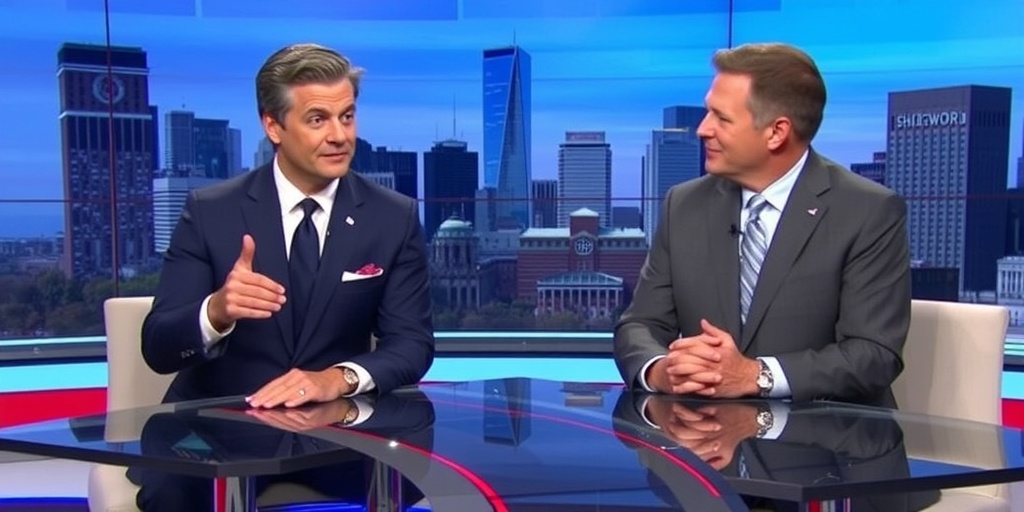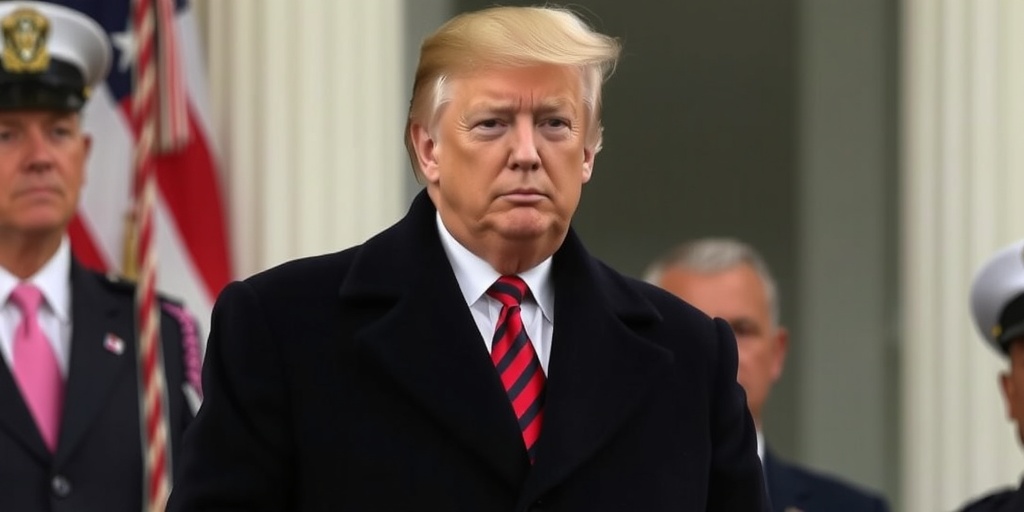Now Reading: Hegseth and Senator Clash Over Meaning of Slang Term
-
01
Hegseth and Senator Clash Over Meaning of Slang Term
Hegseth and Senator Clash Over Meaning of Slang Term

Senate Hearing Takes an Odd Turn as Hegseth is Quizzed on Slang
During a recent confirmation hearing for Pete Hegseth, President-elect Donald J. Trump’s choice to head the Pentagon, an unusual moment arose when Senator Jack Reed, a Democrat from Rhode Island and the ranking member of the Senate Armed Services Committee, posed a rather unexpected question. He inquired if the former Fox News host could define the term “jagoff.”
This question stemmed from a passage in Hegseth’s 2024 book, “The War on Warriors,” in which he recounted an incident during his deployment in Iraq in 2005. After a briefing from a Judge Advocate General (JAG) officer on the appropriate rules of engagement for responding to enemy threats involving rocket-propelled grenades, Hegseth expressed his disdain for one of the rules. He claimed it was “going to get people killed,” reflecting his frustration over the stringent guidelines that he believed could endanger troops in combat situations.
During the Senate hearing, Hegseth initially rebuffed Senator Reed’s request for a definition of the term “jagoff,” responding with a slight smile and a remark, “I don’t need to, sir. The men and women watching understand.” However, when pressed for an explanation, Hegseth offered a more detailed response, suggesting that a “jagoff” refers to a JAG officer who prioritizes personal ambitions such as promotions and medals over the welfare of service members. His comments implied a perception that some legal officers may place their career aspirations ahead of the needs of troops on the frontline.
Senator Reed took issue with Hegseth’s semantics, implying that the use of such slang to describe JAG officers was disrespectful and undermined the core values of the military, which emphasizes discipline and respect for lawful authority. “How will you be able to effectively lead a military in which one of the principal elements is discipline, respect for lawful authority?” Reed challenged Hegseth during the questioning. This exchange highlighted the tension between Hegseth’s provocative comments and the expectation for military leadership to embody integrity and respect.
The term “jagoff,” which Hegseth invoked, has a somewhat convoluted history, rooted in a definition that is more explicit in nature. Over time, its use has evolved into a more generalized insult that describes a person who is bothersome or objectionable. However, the interpretation of the term can vary significantly across different regions. For example, in western Pennsylvania, it can serve as a dismissive jab at someone’s annoying behavior or, alternatively, as a sardonic but affectionate term. A similar trend is seen in Chicago, where it is frequently wielded as a mild derogatory remark.
Notably, the term gained a cultural foothold in Chicago, where it is commonly heard in everyday conversations. Writer Edward McClelland recalled a moment in 2019 when he encountered a motorist running a stop sign. He humorously noted, “Hey, jagoff! You just blew through a stop sign,” branding his account with the tongue-in-cheek assertion, “Pittsburgh may have invented the term, but Chicago perfected it.” This highlights how language can evolve and take on new forms depending on cultural context, illustrating the complexities of regional slang.
Hegseth’s confirmation hearing, characterized by its unusual line of questioning, has sparked dialogue around the importance of language and respect in military leadership. It raises broader questions about how terminology, when used in high-stakes environments like military commands, can have implications for authority and respect among service members. As the dialogue continues around Hegseth’s nomination, the scrutiny on his remarks may reflect a growing public interest in the intersection of language, respect, and military culture in America.
As the Senate moves forward with Hegseth’s confirmation process, observers will be keenly watching how his narratives and expressions are received by lawmakers and military communities alike. In addition to political implications, this incident highlights the ongoing need for clear communication and respect within the ranks of military leadership, where every word can carry weight and contribute to the broader discourse on military conduct and efficacy.
Stay Informed With the Latest & Most Important News
Previous Post
Next Post
-
 01New technology breakthrough has everyone talking right now
01New technology breakthrough has everyone talking right now -
 02Unbelievable life hack everyone needs to try today
02Unbelievable life hack everyone needs to try today -
 03Fascinating discovery found buried deep beneath the ocean
03Fascinating discovery found buried deep beneath the ocean -
 04Man invents genius device that solves everyday problems
04Man invents genius device that solves everyday problems -
 05Shocking discovery that changes what we know forever
05Shocking discovery that changes what we know forever -
 06Internet goes wild over celebrity’s unexpected fashion choice
06Internet goes wild over celebrity’s unexpected fashion choice -
 07Rare animal sighting stuns scientists and wildlife lovers
07Rare animal sighting stuns scientists and wildlife lovers





















